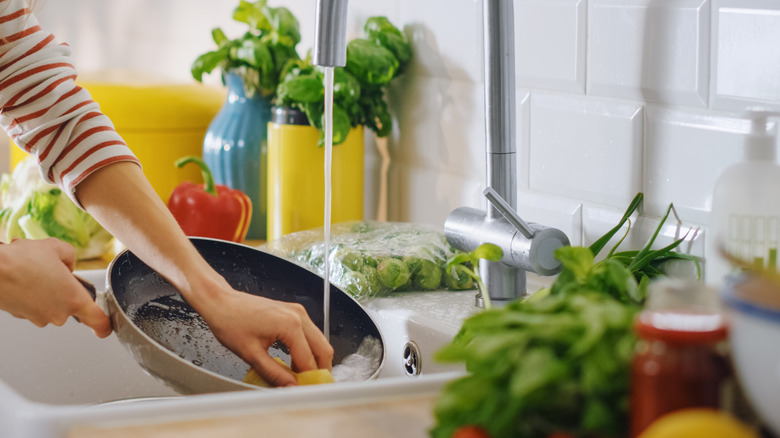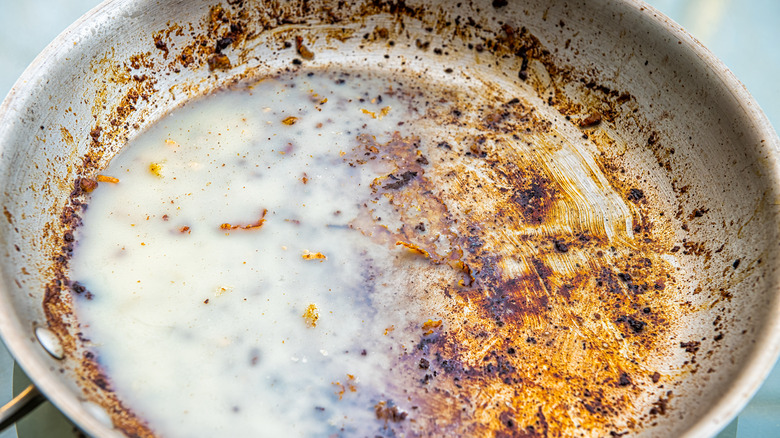Why You Should Never Wash Greasy Pans With Hot Water
While it may seem contrary to popular wisdom, washing a greasy pan in hot water can actually do more harm than good. The issue lies in what it can do to your plumbing — the grease, melted by hot water, can actually solidify in your pipes, causing long-term issues when it coats them. As that gunk builds up, blockages can occur, which often require a professional plumber to address. It's also hard on more than just your plumbing, as accumulated grease and fats can negatively affect city sewers and wastewater treatment plants.
Using cold water, on the other hand, helps solidify the grease, so the chunks of oil and fat can travel through and out of the pipes. Now, this doesn't mean that you should make it a habit to wash away grease every time you cook. Accumulated fats, oils, and grease (FOG) should be scraped off or wiped out of your pans before you tackle the washing. You can keep a dedicated jar handy to capture FOG, or try the aluminum foil hack to get rid of grease. And when you do clean your pans in the sink, be sure to keep the water set to cold.
How to properly wash greasy pans
Cleaning your pans properly helps keep your cookware in good condition and ensures that you don't end up with outrageous plumbing bills. First, let the pan cool completely as hot grease can be dangerous to handle. Once cooled, get rid of the FOG by pouring it into a container or scraping it off into the trash. After wiping out the pan well using paper towels or newspaper, wash it in the sink using cold water and dish soap.
For tougher residues, you might need to use a bit of baking soda as a gentle abrasive. Sprinkle some on the pan and scrub with a damp sponge. Baking soda helps lift the grease without damaging the pan's surface. However, be careful when using baking soda on aluminum pans, and make sure you're properly cleaning ceramic pans to extend their lifespan and maintain their quality. Also, keep in mind that cast iron skillets require a different method of cleaning to help keep them well-seasoned and easy to clean in the future.

